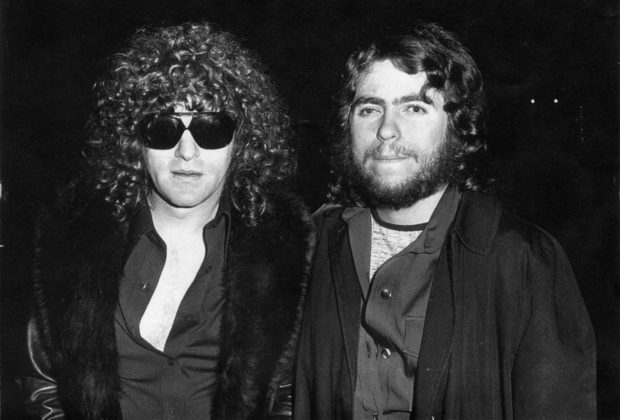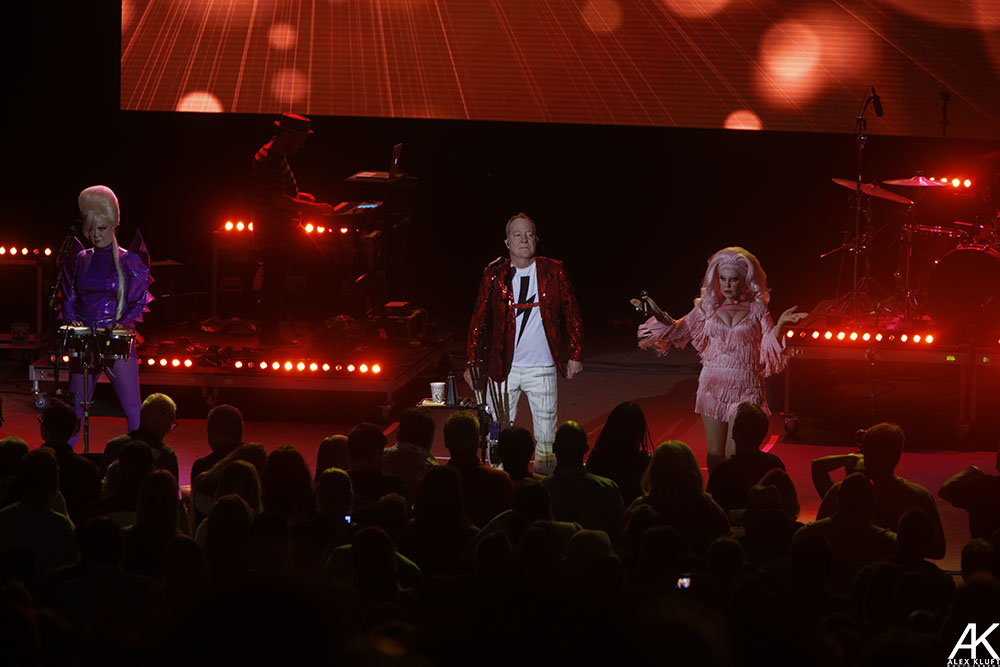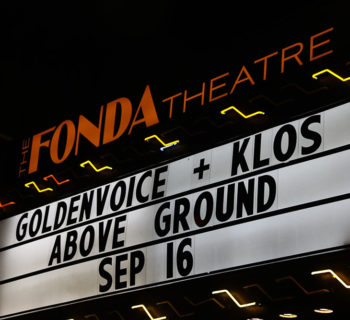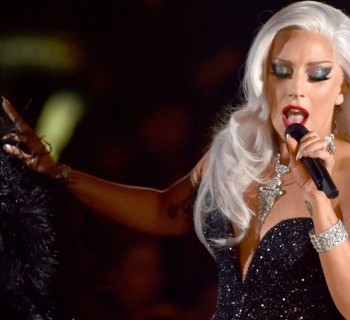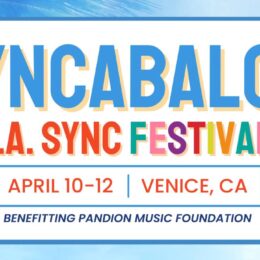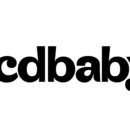This fall, Mott The Hoople '74 will embark on a tour of the US for the first time in 45 years. The tour, featuring core ‘74 members Ian Hunter, Ariel Bender and Morgan Fisher, celebrates the 45th anniversary of their famous 1974 U.S. tour, as well as the original release of The Hoople and Live, the final albums of the classic Mott The Hoople era.
Mott The Hoople '74 is Ian Hunter (vocals and guitar), Ariel Bender (guitar) and Morgan Fisher (keyboards) joined by James Mastro (guitar, saxophone, mandolin), Steve Holley (drums, backing vocals), Mark Bosch (guitar), Paul Page (bass) and Dennis Dibrizzi (keyboards, backing vocals).
Mott The Hoople last performed in the US in 1974 where they played theatres and arenas across the country in support of The Hoople, an album that features “The Golden Age of Rock n’ Roll” and “Roll Away The Stone,” both Top 20 hits in the UK. The groundbreaking band, with Top 15 UK singles “All the Way From Memphis” and “Honaloochie Boogie” and whose big US hit was the Bowie-penned “All the Young Dudes,” became the first rock group to play on Broadway in New York City with a sold-out week at Uris Theatre.
This was also the year that bandleader Ian Hunter published Diary of a Rock ‘n’ Roll Star, his 1974 tour memoir that Q Magazine has called, “the greatest music book ever written.”
In 1974, Mott The Hoople established themselves as one of rock’s most beloved bands. Brian May and Roger Taylor of Queen both credit them and the ’74 tour for helping inspire Queen’s theatrical stage show. Newcomers Aerosmith earned early national exposure when they opened a handful of shows on the ’74 tour as well. The Clash, Cheap Trick, Kiss, Def Leppard, Primal Scream and more have championed Mott’s genre-bending transformation of rock.
“Raw, fun, angry, glorious and jagged: Mott was everything” – Brian May, Queen.
“If it hadn’t been for Mott, there would be no us” – Mick Jones, The Clash
Writing for Creem Magazine, Lester Bangs hailed another of the group’s albums, 1973’s Mott, “an unqualified rock ‘n’ roll masterpiece,” and Rolling Stone around this time called them “the most productive band of the last three years, with only the Rolling Stones in the same category.”
The Mott The Hoople ’74 tour in 2019 begins in Port Chester, New York on October 21st at The Capitol Theatre and concludes November 5th in Portland, Oregon at the Arlene Schnitzer Hall.
Expect a lot of former glitter critters in attendance with a throng of new hipsters just now discovering Mott The Hoople and its inspirational 80-year-old bandleader Ian Hunter at their Golden Voice Presents November 1st show at The Orpheum Theatre in downtown Los Angeles.
Mott the Hoople arrived at CBS Records in 1972 after four promising but unsuccessful albums on the Island Records UK label from 1969 to 1971. The lineup of those LP’s—singer/pianist Ian Hunter, guitarist Mick Ralphs, bassist Overend Watts, organist Verden Allen and Buffin on drums—was helped by David Bowie who supplied them with “All the Young Dudes.”
The outfit then followed with the Mott LP. When Ralphs then left to form Bad Company in late ’73, former Spooky Tooth guitarist Luther Grosvenor (renamed "Ariel Bender") signed on for the album The Hoople. Bender then split to Widowmaker and Bowie refugee guitarist Mick Ronson joined the ranks.
Then Hunter and Ronson both left Mott The Hoople in December 1974 to begin critically acclaimed solo careers. Columbia/Legacy revisited Mott The Hoople with The Ballad of Mott a retrospective 33-song anthology, with four Island/Atlantic tracks that was in retail outlets in 1993. In 2006, the label issued expanded edition collections of Mott The Hoople’s All the Young Dudes and Mott albums.
In 1996, Hunter's delightful and insightful 1974 tour memoir book, Diary of a Rock 'n' Roll Star was republished. In 1999, All The Young Dudes, the official Mott The Hoople biography, was published.
During 2011, The Ballad Of Mott The Hoople, a feature-length documentary directed by Chris Hall and Mike Kerry was released. It tells the tale of this most humble of rock ’n' roll groups through rare and unseen archive footage and the testimonies of band members Ian Hunter, Mick Ralphs, Verden Allen, Dale ‘Buffin Griffin, Ariel Bender and Morgan Fisher, plus numerous other associates and witnesses including Mick Jones of The Clash and Queen’s Roger Taylor.
The filmmakers chronicle the band imploding at the height of their initial fame and present a look into a band that informed the record collections of so many music fans, including members of Def Leppard, The Clash and Morrissey himself, who offers, “Savage history always passes judgement in due course, and here we are, in 2011, still studying Mott The Hoople.”
I saw Mott The Hoople at least a dozen times in the US at a slew of gigs as well as television tapings at their Midnight Special appearances in Burbank, California.
When Mott The Hoople debuted in West Hollywood in July 1970 at The Whisky A Go Go during a Stateside stint when they were on Atlantic Records, I heard a new kind of sonic guidance, informed by Bob Dylan, the Kinks and Jimi Hendrix. On a few radio shifts I’ve had over the last 40 years I’ve programmed their interpretation of the Sonny Bono-penned “Laugh at Me” and the riveting “Rock and Roll Queen.”
I was literally one of the first few people in America in 1972 to hear the white label promotional pressing of “All The Young Dudes” at the Columbia Records office in Hollywood one afternoon after scene-maker and influencer Rodney Bingenheimer, inside his English Disco club on Sunset Blvd, had earlier spun an acetate of the David Bowie-produced disc that Bowie had personally sent over to him by messenger.
In 2015 while writing the book Neil Young Heart of Gold, I found a 1970 rendition of Mott The Hoople doing Young’s “Ohio” when they recorded the tune during a soundcheck at a concert venue.
Ian Hunter emailed me about their cover version of the Young copyright.
“In his twenties, Mick Ralphs had a voice uncannily similar to Neil Young’s. We were doing an album called Wildlife and Mick had a lot to do with that album—a tad of country common sense in among our usual sea of chaos. Mick came in with it, sang it, and that’s the one you’re hearing. I was over on the Jerry Lee Lewis side of things.”
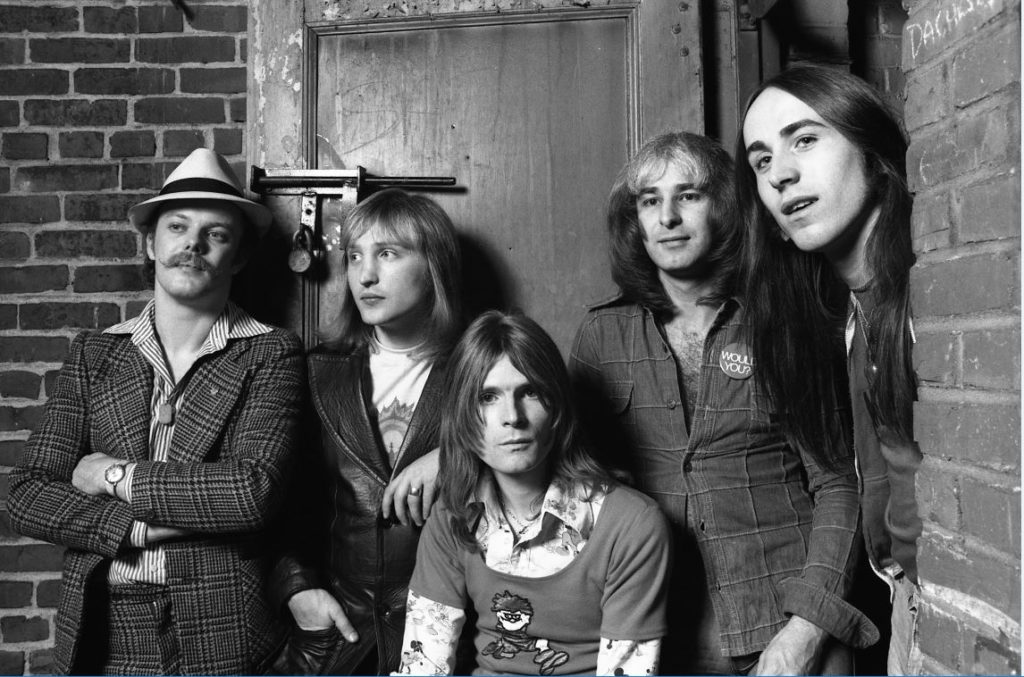
Photo Credit: Don Hunstein/Sony Music Entertainment
Now based in Connecticut, I first interviewed Ian Hunter in 1976 and in 1998 about Mott The Hoople, his songwriting endeavors, their top 40 US single "All The Young Dudes," his appreciation of the band Mountain, reflections about Bob Dylan, Bruce Springsteen and E Street Band, discovering the sounds of Leon Russell and some wry observations on MTV and VH-1 programming.
Q. It’s really wonderful to chart the evolution of a song. I’m thinking of “All The Young Dudes,” now a staple of FM classic rock radio, and it’s been around for decades. Can you talk about the journey with this song? You still perform it. Did you know the tune was that strong when David Bowie taught it to you?
A. Yeah, I knew it was a hit. We went up Regent Street and he sat on the floor in a publishing office with an acoustic guitar and he played it. Two things went down the back of my spine. Well, three things actually. First, a chill, second that it was a hit, and third I could do it.
Q. Did the lyrics jump at you when you first heard them?
A. No, I just knew I could do it. The words. David was coming from a different angle to me. I obviously knew what he was talkin’ about, but I knew at that time. I mean, Mott had had a relatively miserable recording career. They still sell to this day. So overall they sell quite a few. But at that time, none of them charted or anything like that. So, we were folding. And we knew radio wouldn’t play anything of ours unless it was classic. Because they had given us all the chances we were ever going to get. So I knew it had to be “You Really Got Me” or something like that. That was what was in my mind. And all of a sudden this guy comes out of the woodwork.
We’d split, and he wanted to put us back together and he said, “You gotta do this.” And we listened to it and he was right. “Why are you giving it to us?” Ronno told me he had already tried it and it hadn’t worked out to his satisfaction. So I guess when he saw us, with the keyboards and everything, he just thought we could do it. We could.
Q. Did it always have the anthem-like quality to it, even when you first heard and learned it?
A. No, when we first did it, there’s a harmony that comes in halfway through the hook, and I knew we had it then. It was David’s idea. (sings the part) That to me was the killer. On ‘Dudes’ he said ‘be very English.’ The only thing that was missing was that it kept going round on the end. He said, “I’m worried about it.” ‘Cause we did it in two evenings.
We did “One Of The Boys” and “All The Young Dudes.” “Boys” was a ‘B’ side. At the end of the second evening, he was going off, “I think ‘Boys’ is the single.” I said, “You are out of your mind.” He said, “The back end of ‘Dudes’ is going round and round. Nothing is happening. There’s no, like, killer punch.” The talking part was my idea. And I just went out and added chat I had done at a gig a couple of nights prior at The Rainbow. I just repeated it, just for something to do. Just to rev it up at the end. By the time we had finished it we were totally knocked out. David wrote a big hit for us. We helped him and he helped us.
Q. What do you remember about your first exposure to American radio when you toured the US in 1969 or in 1970?
A. First thing I thought was why they didn’t introduce each song. In England they always introduced each song. Here you had about seven songs in a row and then they would say who did them. And by that time I couldn’t figure out who I’d listened to. I found that difficult. They’d play seven straight songs in a row by, like, The Allman Brothers and all these other bands who all sounded a bit same to me, to be honest with you. At the end of it all they’d say who did ‘em, and I’d forgotten which one they did. That was the first thing I noticed about radio over here.
The second thing was there were a million different stations, which there was at the time. And we could visit a radio station for an hour and just chat. And it was any album track from any album from any band you wanted to hear. They would say, “What do you want to listen to?” And they would have it. So it was wide open in those days. Their libraries were huge. It’s changed an awful lot and for the worse.
Q. In spinning various reissues and your solo album work, I never realized how many artists and bands have covered your songs. There are currently over 50 covers of your compositions, and tunes have been recorded by the likes The Presidents of the United States, Status Quo, Barry Manilow, The Pointer Sisters, Thunder, The Monkees, Willie Nelson, Great White, Blue Oyster Cult and Bonnie Tyler.
I still hear on classic rock pop stations Barry Manilow's version of your “Ships” song. I know you wrote it for your dad and it was a top 10 single. How did Barry Manilow become aware of the track?
A. I wrote it about my father and Clive Davis, who was head of Arista Records at the time, used to play these songs in the background to people when they walked into meetings with him. And apparently, Steve Popovich (of Epic and later Cleveland International Records fame) had played it to him and started playing it to his artists when they came in. And Barry Manilow was one of the artists that came in and picked up on it. I think his father had just died.
Q. Beautiful tune.
A. Thank you.
Q. In 1996, your book, Diary of a Rock 'n' Roll Star was republished. It had originally been printed in the early 1970s. When you reread the book and prepared for the re-release, what struck you the most in the text?
A. The added thing for it now is, of course, it's historical. I mean stuff that is in it is from that time. Like the prices of things. It’s historical now as opposed to an ongoing thing. As far as I was concerned, I hadn't really changed that much. It sounded like me. I talk that way. It sounded like a month out of my life.
Q. Has your approach to writing songs changed much from your early days, pre- Mott The Hoople when you were a journalist and a staff songwriter for Francis Day before you joined Mott The Hoople?
A. I would probably not be the best one to ask that. I think I've developed a quality control over the years. I always think what I'm doing now is the best thing I've ever done. But that's not necessarily true. That's the way a writer will think, you know. I'm surprised when I listen back.
Q. How do you write songs? Do you use a computer or typewriter for lyrics?
A. No. A good lyric is in me head anyway. I do a lot of it lyrically and wake up at 5:00 a.m. I can hear the whole thing in my head. Your antennae is up. You get lucky or you don't. It's constant. It now takes me about five years to write a record that I'm happy with. You go through all different layers of songs. You start off with a song, then three weeks later you think it's crap. You keep goin' until you get to the point where these songs are stayers. I like them. They sound really good. I constantly change the songs right up until recording. Things come in and it could be that it rolls off the tongue easier. You know what I mean phrase wise.
Q: The Mott The Hoople demo audition for Island Records talent scout, and their future producer, the energetic Guy Stevens, had a segment of you singing Bob Dylan’s “Like A Rolling Stone,” collected in the Mott The Hoople box set. You eventually met Dylan.
A: It’s no secret that I’ve always acknowledged Bob Dylan as one of my heroes. Michael (Mick Ronson) always liked to go to Reno Sweeney’s (a club in New York). One night I said to Mick, "Why don’t we go down to the village?"
I took him down to the village. He’d never been there before. We went an' all hell broke loose. Dylan was playing next door in a little café. 40 people in the room and he performed what was to be the Desire album. It was great. There he was. What an electric night!
Mick didn’t know what was going on. Bobby Neuwirth then got him the gig with the Rolling Thunder [Revue]. Dylan recognized me when Neuwirth told him who I was.
We were introduced, and Dylan started jumping up and down saying "Mott The Hoople. Mott The Hoople." Here I was talking to Dylan, and I thought he didn’t like Mott The Hoople by the way he was acting.
I didn’t need this shit mocking me. But then he turned round and said, "No, man, I dig Mott The Hoople! ‘Half Moon Bay.’ ‘Laugh At Me.’"
Q. There’s a photograph of you and Dylan taken in New York in 1984 at The Whitney Museum celebrating the release of Dylan’s Biography box set. What does this photo trigger? Two dudes with shades.
A. The first thing he did was go to the bar because he couldn’t handle it. All these people. The Band were there. Everybody in there I respected. Then the company people came, he went to the bar and proceeded to get pissed. I can’t remember what I said to him that night...
But the two artists I grew up with, Bob Dylan and the Stones (Mick Jagger) were both limited singers. But Jagger was the sexiest singer in the world, and Dylan would make your hair stand on the back of your head. Because his voice was so lousy. That’s the truth.
I’ve got a lousy voice, and so have Randy Newman and Leonard Cohen. But it doesn’t really matter. I’m conscious of not being a good singer, but that’s just in your throat. I think we all get the message across.
When he got ill a few years back, I was in England, and it hit me like a ton of bricks. I couldn’t believe it. I hardly know this bloke, you know what I mean? ‘Cause at first they didn’t know what it was. They thought he was seriously ill. I’m like, “Oh my God!” I’ve had people die on me. A lot of people died. That really shook me up. I seem to have very strong feelings in another way, a deeper way with that guy. A lot of people do, you know.
Q. I played your album Schizophrenic a while back. You were backed by members of the Bruce Springsteen E. Street Band. I remember sitting with you at a Bruce Springsteen concert in 1978 in New Jersey at Princeton University and had no idea you were checking out his band. Were you then even a fan of Bruce?
A. I liked the band. I wasn’t too sure about Springsteen because—it wasn’t his fault, but clean rock ‘n’ roll came in about that time, and he seemed to be the cigarette. (laughs) I was very angry, and I don’t know why, because I saw him again in June 2000 at Madison Square Garden, and I said to him afterwards, “Some people are rock ‘n’ roll, a lot of people run around it, but I said I saw a forest tonight.” I mean, they were great! The first five songs were mind-blowing.
That’s what I said to him. He’s for real. And also, he tries to change people, he tries to make people better, ya know. That whole kinda quasi-evangelist thing that he does. He’s trying to get a point across there. And it’s funny, but he’s trying to get the point across. And I think he’s a man of the people. I think he’s genuine. The feeling with him I get is genuine. And of course, that band on them middle speeds, there's nobody better. That band is the finest band there is.
There’s an element of corn there, but people love corn. And he knows that. I know that too. Some of the things he does wouldn’t be classed as cool, but then cool is a very overrated thing. There’s a lot of cool people about that I think are absolute idiots.
Q. I was listening to Mott The Hoople and have re-read some of the interviews you gave over the decades. I must admit that I’ve sorta been checking out the band Mountain, who you’ve always cited as one of your favorite groups. Explain your fascination with Mountain. You covered them as well.
A. They were amazing.
Q. They were underrated.
A. And I think they did their best to underrate it actually. When you saw Mountain, it was one of the greatest rock bands ever.
Q. Was it the loudness thing and the dynamics between the band members?
A. Yeah. The organ player plays twiddly one-liners up against this enormous Leslie West sound. And Leslie is like a great player. And I’ve seen him slip into Hendrix stuff and other stuff. I produced him at one point. He’s a great singer. I think what he misses is Felix (Pappalardi). Because those two used to be nose-to-nose and somehow Felix would translate. Felix had a quality. A musical quality and they would go nose-to-nose. It was almost like Leslie was playing what Felix was thinking. Amazing band.
I remember Mick Ralphs [former Mott The Hoople member] was in tears in Texas on a tour which was Traffic, Mountain and us. And I said to Mick, “What’s the matter with you?” And he said, “Well, have you ever aimed at something your entire life and seen it before you got there?” Yeah...”
Q. And we’ve talked before, but on your first 1970 tour of America, you really discovered and got turned on to Delaney & Bonnie and Friends, especially Leon Russell.
A. Yes. My thing was Leon. Leon got a lot of slack from that tour and Mad Dogs and Englishmen film because people kept saying he was trying to put (Joe) Cocker away. I don’t think Joe was that fit and healthy at that time and Leon was really doin’ the business. The piano playing...
“In The Ghetto” was the first time I heard Leon. It was on an album. I just couldn’t believe it. It was gospel rock. It was unbelievable. And I know where he got it from, like Dr. John and a couple of other people, but for me the style of playing. I went home and tried to do that for months. I tried to learn that song for months. I got near it but never got it right. The feel.
Q. What has always attracted you to the piano and organ combination? We’ve talked about Bruce Springsteen & The E Street Band sound and Dylan’s Highway 61 Revisited period, various Leon Russell studio things. This double keyboard deal.
A. When we started there wasn’t any keyboards other than piano and organ. We didn’t have these little keyboards that now can do everything. And if you wanted piano and organ at the same time on a track, you couldn’t get a guy with his left hand on one keyboard and his right on another. You had to get a piano player and an organ player. So then you had the piano and organ color. And then you had all the different guitar colors. And it was also extremely powerful.
Like “Ballad of Mott." Some of those songs we would take ‘em down to zero and all of a sudden BANG, the whole lot would come in. It was easier to put dynamics in and drama, and beautiful, quiet stuff too. Sustaining stuff. Some things a guitar can’t do. It’s just that fraction too jagged. There’s a smoothness with a piano and an organ.
Q. Do you watch MTV or VH-1 at all?
A. Not much. VH-1, Behind The Music sometimes if there is someone who interests me.
Q. That Behind The Music. Ridiculous.
A. It’s pathetic. Too many fuckin’ people, “I dunno. I was coked out of me fuckin’ brain.” This is real clever. This is telling all these kids, “Well, I can look as good as him and do coke all me life.” Conveniently forgetting this bloke has had three facelifts. It’s pathetic. Shut up. Shut it.
Elton does that. I love Elton John. I’ve always loved Elton John. He’s a great middle-of-the-road artist, but he won’t stop doing it and he’s been very nice to me over the years. But I just wish he’d shut up about it. Because there are a lot of kids who are not impressed at all by this, but there are marginal kids who might be thinking about it and that could swing them the wrong way. You know, I don’t mind anybody having a joint but all this other stuff is a waste of time.
Q. But the music media and book publishers reinforce these lifestyles and sob stories.
A. That’s all they want. The guy who wrote the book on Mott the Hoople (All The Young Dudes - The Official Biography, published by Cherry Red Books), right? It was a great book and he couldn’t get a publisher. And he could have probably gotten a publisher if he had put in sex, drugs and rock ‘n’ roll. But he wouldn’t. He just wanted to tell the story of a musical band doing music. And there was stuff that went on. Stuff went on in every band, but we wanted the music. The band itself. And he did a hell of a job.
My business manager says to me, “You know the trouble with you, Hunter, is that you didn’t die at the right time.” (laughs)
Q: You have a popular website www.ianhunter.com
A: Yea. Well I've got a web site now, so it's easier. They come to me before they put 'em out. I won't do chat groups, but what I'll do is on my site there's a thing called From The Horse's Mouth. I'll update this once a fortnight. And I won't answer individual e-mail because there's too much of it. I'm getting like 300,000 hits a month.
I don't want to get into individual e-mail because it might turn funny, but what I will do is give them a general overview of what is going on, and try and keep it up to date. 'Cause I don't want it to be one of them things that stays the same for three months at a time. And, it's been pretty successful.
I do have fans but they're kinda dotted about in pockets, all over the place. And they've never been able to find me because I haven't had a manager for years. Now they've got somewhere to go. And there's been other good web sites, too. But they kind of like it 'cause they know I'm reading their e-mail. Trudi, my wife, will pick some of the e-mail and show it to me and I'll react in a general sort of way. So that's the way I do it.
Q. And, I've noticed on your site the fans and cruisers are really into information and lyrics.
A. Pretty sensible. It's not like 'What color is your hair?' You know what I mean?
Q. Is it all guys on your site? Are there women as well?
A. Surprisingly, yes. I've never been one that has drawn many women to gigs. It's usually predominantly male. But on the e-mail, there's quite a lot of women. I'd say about a third.
Q. Your old pal Kim Fowley says hello and is cited in your 1974 book. Did you really see Kim get run over by a taxi?
A. I remember him gettin' run over in Northampton. He went right up in the air, came down, covered in blood, and all he said was "Get to the gig! Get to the gig!"
Q. Do you collect records or buy CDs? Are you a consumer?
A. I’m not a consumer. I never was. I never listen to music. I found early on that if I listened to it I started sounding like it. So I stopped doin’ it. It’s like working in an ice cream factory. You don’t eat the ice cream. If I’ve got records here, it’s because they’ve been given to me. I’ve got a ton here. I’ll go through them now and again. A lot of times I’ll go back to albums, like an old Dylan album, or an old Stones album.
I only like listening to the greats. I wanted to be great. I didn’t want to be average. I wanted to be great so I didn’t see the point in listening to average stuff. I only ever listen to the great stuff. You know, Hendrix, Stones, Dylan. People like that. I don’t see the point in listening to anything else. If I’m trying to strive for something, you know then strive to be great. Don’t strive to be average. There’s no point.
Q. Those people have durability.
A. Those people are fuckin’ good. No other word for it.
Harvey Kubernik is an award-winning author of 15 books. His literary music anthology Inside Cave Hollywood: The Harvey Kubernik Music InnerViews and InterViews Collection Vol. 1, was published in December 2017 by Cave Hollywood. Kubernik’s The Doors Summer’s Gone was published by Other World Cottage Industries in February 2018.
Kubernik’s The Doors: Summer's Gone has been nominated for the 2019 Association for Recorded Sound Collections Awards for Excellence in Historical Recorded Sound Research.
During November 2018, Sterling/Barnes and Noble published Kubernik’s The Story of The Band From Big Pink to the Last Waltz.
Harvey Kubernik’s 1995 interview, Berry Gordy: A Conversation With Mr. Motown, that initially was published in 1995 in Goldmine and HITS magazines is included in The Pop, Rock & Soul Reader edited by David Brackett to be published in 2019 by Oxford University Press.
This century Kubernik penned the liner note booklets to the CD re-releases of Carole King’s Tapestry, Allen Ginsberg’s Kaddish, Elvis Presley The ’68 Comeback Special and The Ramones’ End of the Century.
In November 2006, Kubernik was a featured speaker discussing audiotape preservation and archiving at special hearings called by The Library of Congress and held in Hollywood, California.

